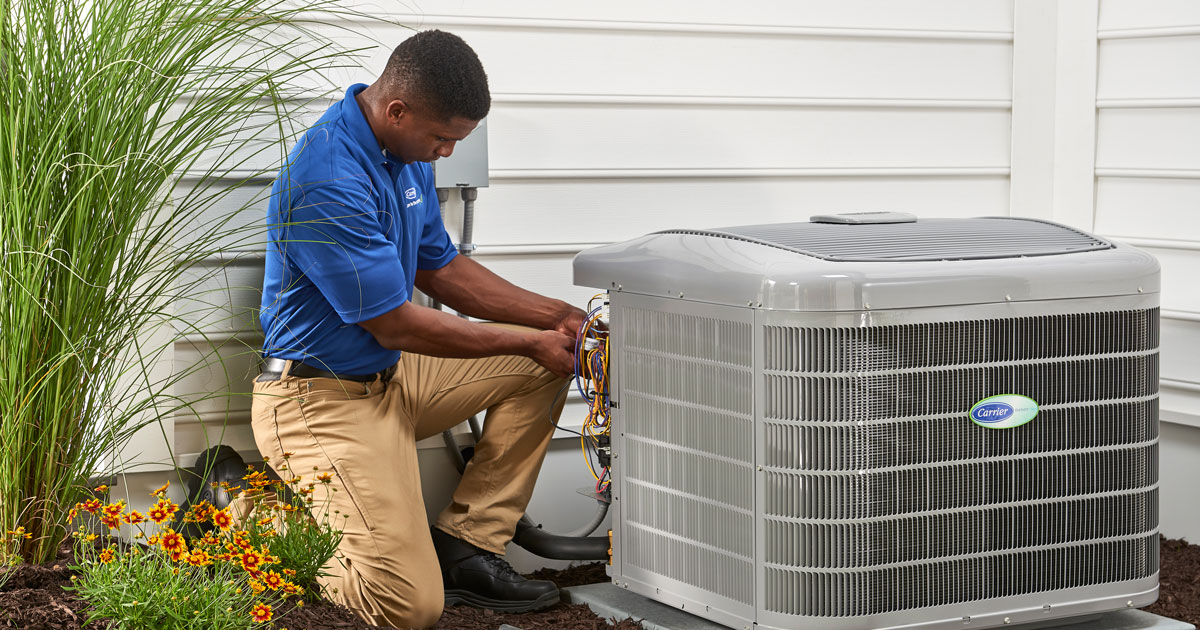In the current fast-paced world, establishing a pleasant living and office space is crucial for both efficiency and comfort. This is the point at which HVAC units serve a significant role. Knowing how to improve index can result in a substantial difference in your comfort levels, utility costs, and general indoor environment. Whether you are a property owner wanting to upgrade your climate regulation effectiveness and a business owner looking to forge a positive workplace, understanding the nuances of your HVAC system is essential.
This manual will take you through all you need to learn about HVAC systems, from basic principles to expert strategies for improvement. We will discuss common problems and their fixes, maintenance tips for ensuring your system operating effectively, and how to pick the right system for your particular needs. Equipped with the right information, you can ensure your HVAC system plays a role to a healthy and pleasant atmosphere while also being cost-effective in terms of energy.
Comprehending HVAC
Heating, ventilation, and air conditioning refers to a comprehensive system. It is a complex arrangement crafted to provide environmental well-being and adequate indoor air quality. Grasping how such systems work can help homeowners choose wisely about their heating and cooling needs. A effectively designed HVAC system is essential for ensuring a pleasant living environment throughout the seasons.
At its core, an HVAC system functions by using various elements, including furnaces, air conditioners, heat pumps, and ventilation systems. These elements work together to manage indoor heat levels and humidity while maintaining proper ventilation. Knowing how these elements interact can help you resolve common concerns and boost system performance. This link underscores the importance of understanding both the separate components and the entire system.
Regular maintenance is crucial to the durability of HVAC systems. Routine inspections and prompt repairs can avoid minor issues from becoming major difficulties, keeping that your system runs smoothly and effectively. By click this over here now with the fundamentals of your HVAC system, you can implement forward-thinking steps to improve its functionality, save on energy costs, and improve overall well-being in your home.
HVAC Maintenance and Troubleshooting

Frequent maintenance is vital for guaranteeing your heating and cooling system functions effectively and performs for many years. This includes tasks such as replacing air filters, maintaining the condenser and evaporator coils, and monitoring the refrigerant levels. A new filter not only helps preserve good airflow but also boosts indoor air quality. Scheduling annual expert inspections can help spot small issues before they turn into significant problems, preserving you hours and financial resources in the end.
One of the most frequent issues that HVAC systems deal with is subpar airflow, which can be due to blocked vents or ducts, a dirty filter, or even broken fans. If you notice discrepant temperatures in different rooms, it is crucial to check the airflow and ensure that nothing is blocking the vents. In some instances, you may need to adjust the thermostat to improve performance. Listening for unusual noises from the system can also signal potential problems that need urgent attention.
When handling HVAC troubleshooting, it is important to know when to repair and the appropriate time to replace. If your system is often breaking down, is over ten years old, or requires costly repairs, it may be more financially sensible to invest in a new system. Get to know of the warranty terms and service options available for your system, and explore modern solutions that enhance energy efficiency. Adopting smart technology can also provide more command over your system and help decrease energy bills.
Energy Efficiency and Innovations in Heating, Ventilation, and Air Conditioning
The Heating, Ventilation, and Air Conditioning industry has seen notable improvements in energy optimization, driven by the need for sustainable solutions and affordable heating and cooling. Contemporary systems are designed to lower power usage while improving comfort. Technological advancements such as variable speed compressors, sophisticated heat exchangers, and high-performance insulation materials contribute to lower energy expenses and improved performance. These technologies allow HVAC systems to adapt to fluctuating environmental conditions, ensuring peak efficiency throughout the year.
Intelligent heating and cooling systems have emerged as a transformative approach in energy optimization. These systems can hook to the internet, allowing homeowners and companies to track and control their HVAC units from anywhere. Features such as scheduling, learning algorithms, and integration with IoT devices enable users to make intelligent decisions about energy use. By optimizing settings and usage patterns based on current information, these systems can considerably reduce electricity costs and monthly charges.
Putting resources into innovative HVAC solutions not only boosts comfort but also promotes sustainability objectives. Energy-efficient systems often qualify for rebates and incentives, making them an desirable option for homeowners. Additionally, innovations like solar energy HVAC systems and ground-source heat pumps showcase the promise for combining sustainable energy technologies. As the focus on sustainability continues to grow, embracing these technologies will be key for both domestic and commercial applications in the pursuit of energy optimization.
